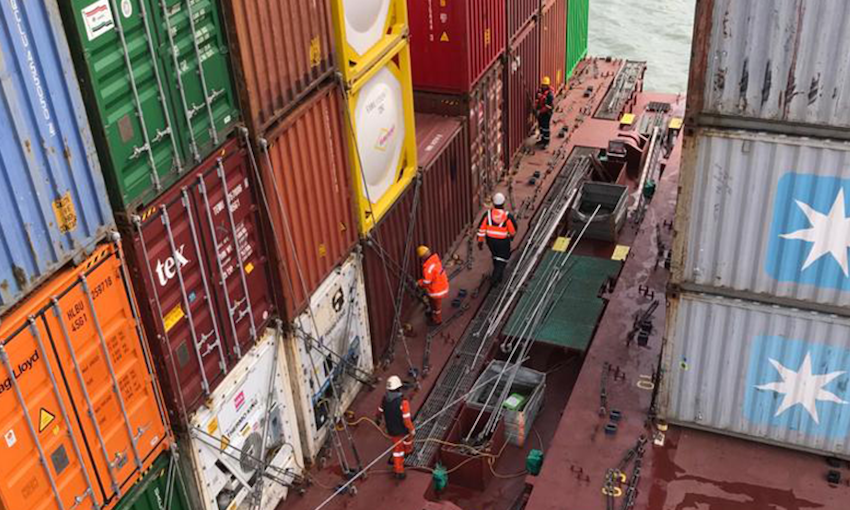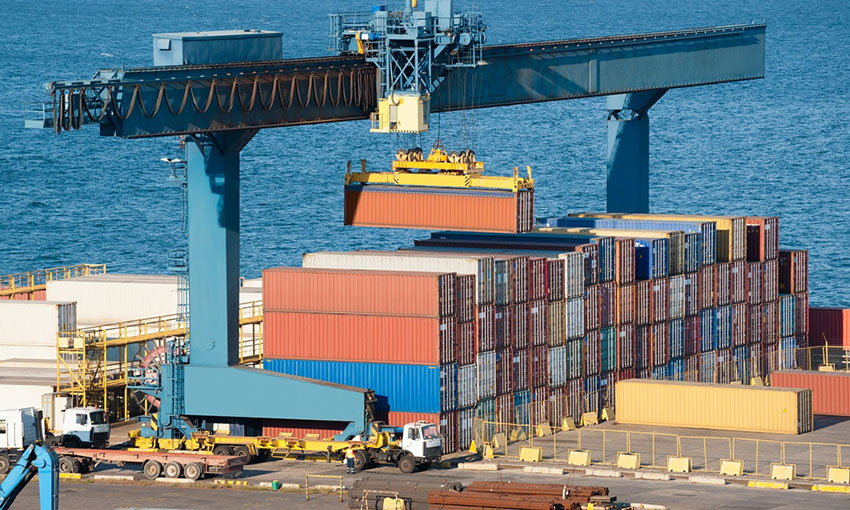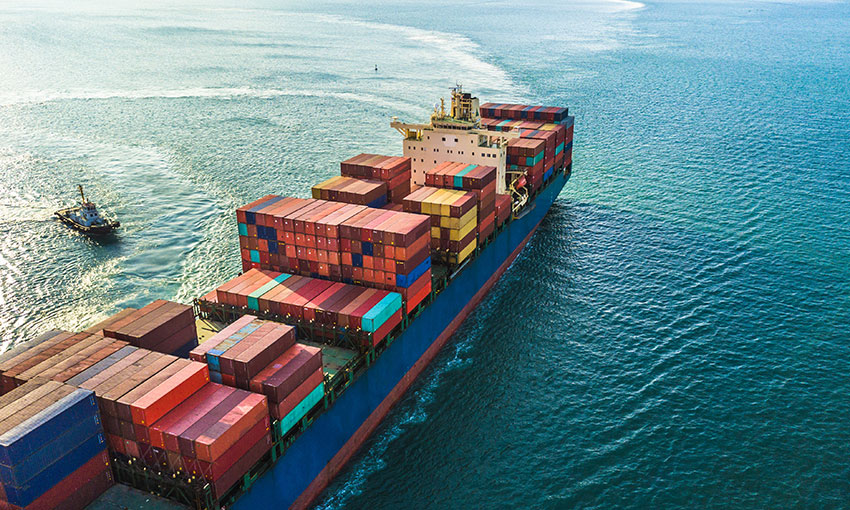A DUTCH court has ruled that ship managers, ship owners and charterers must honour a clause stipulating that cargo lashing work is to be assigned to dock workers rather than seafarers.
The Non-Seafarers Work Clause, otherwise known as the “Dockers’ Clause”, came into force around the world in 2020 as part of the collective bargaining agreement of the International Bargaining Forum.
“Neither Seafarers nor anyone else on board whether in permanent or temporary employment by the Company shall carry out cargo handling services in a port, at a terminal or on board of a vessel, where dock workers, who are members of an ITF affiliated union, are providing the cargo handling services,” the clause states.
“Where there are not sufficient numbers of qualified dock workers available, the ship’s crew may carry out the work provided that there is prior agreement of the ITF Dockers Union or ITF Unions concerned; and provided that the individual Seafarers volunteer to carry out such duties; and those Seafarers are qualified and adequately compensated for that work.
“For the purpose of this clause “cargo handling services” may include but is not limited to: loading, unloading, lashing, unlashing, checking and receiving.”
In short, and according to maritime trade union Nautilus International, the clause provides that lashing must be done by qualified dock workers.
And, if dock workers are not available, then seafarers may only lash on a voluntary basis and in return for additional pay.
But, according to the International Transport Workers’ Federation, companies Marlow Cyprus, Marlow Netherlands and Expert Shipping had been assigning “dangerous” lashing work to seafarers in the Netherlands despite being signatories to the collective bargaining agreement.
The ITF, Nautilus and Dutch dockers’ union FNV Havens brought the case against the companies.
Nautilus International suggested the employers, shipowners and charterers argued the clause violated competition law and refused to comply.
But the Dutch court has reportedly determined the clause – as part of a collective bargaining agreement reached through social dialogue – is exempt from competition law and plays an important role in ensuring seafarers’ safety.
As such, ship owners have been ordered to comply with the clause not only in Port of Rotterdam, but in foreign ports.
The ITF said the court emphasised the importance of the proper implementation of agreements reached through social dialogue and the binding nature of such agreements.
ITF president and Dockers’ Section chair Paddy Crumlin said the court decision reminded the employers “what it actually means to be a social partner”.
“Seafarers, dockers and our unions have upheld our parts of the agreement, which has delivered these companies stable profits,” Mr Crumlin said.
“This case is a big step forward in our campaign, but we won’t be happy until we get all charterers to respect the clause.
“Now, it is time for these employers, particularly short sea shipping charterers, to return to true social dialogue and restore good faith with unions, this must include working with shipowners to implement the Non-Seafarers’ Work Clause.
“Our industry has important issues to tackle together, and we will continue to be part of the IBF process that has improved wages and working conditions for seafarers for almost 20 years.”
ITF Dockers’ Section vice-chair Niek Stam, who is also the leader of FNV Havens, said the ruling was both a victory for seafarers’ safety and for dockers’ jobs.
“Those who don’t fight will never win,” he said. “This is the only logical outcome of the lawsuit. Otherwise, a signature would no longer be worth anything. A deal is a deal.
“Lashing can be extremely unsafe for seafarers, who are often untrained in port operations, such as the dangers of moving cranes. Automated terminals and supply chain pressures have further increased these dangers to ships’ crew.”
Nautilus executive officer Sascha Meijersaid raised the issue of fatigue among seafarers in relation to safety issues around lashing.
“It is a victory for everyone in the maritime sector that those agreements cannot be haggled with,” she said.
It is understood that if the defendants fail to comply with the collective bargaining agreement they may face significant fines.





